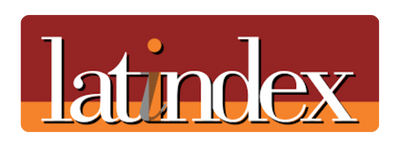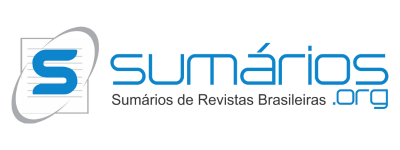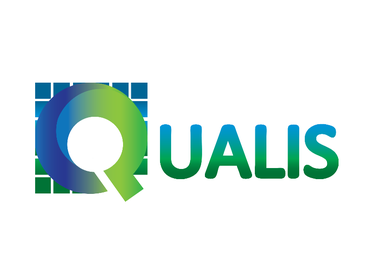SUSTAINABILITY ASSESSMENT IN THE SELECTIVE COLLECTION OF SOLID WASTE
INDICATORS AND PROPOSALS FOR PUBLIC POLICIES
Visualizações: 286DOI:
https://doi.org/10.56579/rei.v6i5.1320Keywords:
Solid Waste Management, selective collect, sustainability indicatorsAbstract
This study investigated the management of solid waste in a city in the state of Mato Grosso, emphasizing selective collection as an essential strategy to mitigate the resulting environmental and social impacts. Despite regulatory advancements, effective implementation of this approach remains challenging. The research utilized the sustainability indicators matrix proposed by Besen et al. (2017) as the methodological foundation. Data collection involved documentary analysis, interviews with local stakeholders engaged in the waste collection system, and direct observations of operations. The results of applying the sustainability matrix indicated an overall positive trend towards sustainability in selective waste collection, particularly in institutional, legal, social, and financial aspects. However, weaknesses in system efficiency, especially in recyclable recovery rates and rejection rates, point to financial challenges. The findings of this study provide valuable guidance for public managers and cooperatives, offering a robust foundation for enhancing solid waste management efficiency. Furthermore, the methodology and findings can serve as a template for other municipalities in developing and refining their public policies on solid waste management.
Downloads
References
ABRAMOVAY, R. Muito além da economia verde. São Paulo: Ed. Abril, 2012.
BARROS, R. T. de V.; SILVEIRA, Á. V. F. Uso de indicadores de sustentabilidade para avaliação da gestão de resíduos sólidos urbanos na Região Metropolitana de Belo Horizonte. Engenharia Sanitária e Ambiental, v. 24, n. 2, p. 411-423, 2019.
BERG, A. B.; RADZIEMSKA, M.; ADAMCOVÁ, D.; ZLOCH, J.; VAVERKOVÁ, M. D. Assessment Strategies for Municipal Selective Waste Collection – Regional Waste Management. Journal of Ecological Engineering, v. 19, n. 1, p. 33-41, 2018. DOI: https://doi.org/10.12911/22998993/79405.
BESEN, Gina Rizpah; GÜNTHER, Wanda Maria Risso; RIBEIRO, Helena; JACOBI, Pedro Roberto; DIAS, Sonia Maria. Gestão da coleta seletiva e de organizações de catadores: indicadores e índices de sustentabilidade. Fundação Nacional de Saúde (Brasil). Universidade de São Paulo. Faculdade de Saúde Pública/USP, 2017.
BRASIL. Política Nacional de Resíduos Sólidos (Lei nº 12.305/2010). Brasília: Diário Oficial da União, 2010. Disponível em: http://www.planalto.gov.br. Acesso em: 23 set. 2018.
BRYSON, John M. Strategic Planning for Public and Nonprofit Organizations: A Guide to Strengthening and Sustaining Organizational Achievement. 4. ed. San Francisco: Jossey-Bass, 2011.
CAMPOS-ALBA, C. M.; GARRIDO-RODRÍGUEZ, J. C.; PLATA-DÍAZ, A. M.; PÉREZ-LOPEZ, G. The selective collection of municipal solid waste and other factors determining cost efficiency. An analysis of service provision by Spanish municipalities. Waste Management, v. 134, p. 11-20, 2021. DOI: https://doi.org/10.1016/j.wasman.2021.07.039.
CARVALHO, Daniela S.; SGUAREZI, Sandro B.; FROEHLICH, Anderson G. Aplicação de indicadores de sustentabilidade na gestão de resíduos sólidos em Tangará da Serra, Mato Grosso, Brasil. Revista Brasileira de Gestão Ambiental e Sustentabilidade, v. 9, p. 185-203, 2022.
CARVALHO, Daniela S.; SGUAREZI, Sandro B.; FROEHLICH, Anderson G. Indicadores de sustentabilidade para gestão de resíduos sólidos: um olhar para as políticas públicas municipais. 1. ed. São Paulo: Dialética, 2023. 260p.
COMISSÃO MUNDIAL SOBRE MEIO AMBIENTE E DESENVOLVIMENTO. Relatório Brundtland: Nosso Futuro Comum. Disponível em: https://ambiente.wordpress.com/2011/03/22/relatrio-brundtland-a-verso-original/. Acesso em: 15 nov. 2024.
ESPINOZA, P. T.; ARCE, E. M.; DAZA, D.; FAURE, M. S.; TERRAZA, H. Avaliação Regional da Gestão de Resíduos Sólidos Urbanos na América Latina e Caribe. México: BID, OPAS e AIDIS, 2010. 160 p.
EXPÓSITO, A.; VELASCO, F. Municipal solid-waste recycling market and the European 2020 Horizon Strategy: A regional efficiency analysis in Spain. Journal of Cleaner Production, v. 172, p. 938-948, 2018. DOI: https://doi.org/10.1016/j.jclepro.2017.10.221.
FRATTA, K. D. S. A.; TONELI, J. T. C. L.; ANTONIO, G. C. Diagnosis of the management of solid urban waste of the municipalities of ABC Paulista of Brasil through the application of sustainability indicators. Waste Management, v. 85, p. 11-17, 2019. DOI: https://doi.org/10.1016/j.wasman.2018.12.001.
GALETA, G.; DE GISI, S.; TODARO, F.; CAMPANARO, V.; TEODOSIU, C.; NOTARNICOLA, M. Sustainability assessment of municipal solid waste separate collection and treatment systems in a large metropolitan area. Sustainable Production and Consumption, v. 29, p. 328-340, 2022. DOI: https://doi.org/10.1016/j.spc.2021.10.023.
GUABIROBA, R. C. da S.; JACOBI, P. R.; ABEGÃO, L. H.; BESEN, G. R. Sustainability performance evaluation of municipal selective collection systems applied to a case study. Revista Brasileira de Ciências Ambientais (RBCIAMB), v. 58, n. 1, p. 1–10, 2023. DOI: https://doi.org/10.5327/Z2176-94781482.
IBÁÑEZ-FORÉS, V.; BOVEA, M. D.; COUTINHO-NÓBREGA, C.; MEDEIROS-GARCIA, H. R.; BARRETO-LINS, R. Temporal evolution of the environmental performance of implementing selective collection in municipal waste management systems in developing countries: A Brazilian case study. Waste Management, v. 72, p. 65-77, 2018. DOI: https://doi.org/10.1016/j.wasman.2017.10.027.
INSTITUTO BRASILEIRO DE GEOGRAFIA E ESTATÍSTICA (IBGE). Perfil dos municípios brasileiros: meio ambiente 2012. Rio de Janeiro: IBGE, 2010.
INSTITUTO DE PESQUISA ECONÔMICA APLICADA (IPEA). A Organização Coletiva de Catadores de Material Reciclável do Brasil: Dilemas e Potencialidades sob a ótica da Economia Solidária. Rio de Janeiro, 2017. Disponível em: http://repositorio.ipea.gov.br/bitstream/11058/7413/1/td_2268.PDF. Acesso em: 17 out. 2019.
MELAKU, H. S.; TIRUNEH, M. A. Occupational health conditions and associated factors among municipal solid waste collectors in Addis Ababa, Ethiopia. Risk Management and Healthcare Policy, v. 2020, n. 13, p. 2415-2423, 2020. DOI: https://doi.org/10.2147/RMHP.S276790.
MORLOK, J.; SCHOENBERGER, H.; STYLES, D.; GALVEZ-MARTOS, J. L.; ZESCHMAR-LAHL, B. The impact of pay-as-you-throw schemes on municipal solid waste management: The exemplar case of the county of Aschaffenburg, Germany. Resources, v. 6, n. 1, p. 8, 2017. DOI: https://doi.org/10.3390/resources6010008.
NATIONAL SANITATION INFORMATION SYSTEM (SNIS), 2022. Diagnóstico temático de manejo de resíduos sólidos urbanos – ano de referência 2021. Secretaria Nacional de Saneamento, Governo do Brasil. Disponível em: http://antigo.snis.gov.br/diagnosticos. Acesso em: 15 dez. 2022.
OLIVEIRA, V.; SOUSA, V.; VAZ, J. M.; DIAS-FERREIRA, C. Model for the separate collection of packaging waste in Portuguese low-performing recycling regions. Journal of Environmental Management, v. 216, p. 13-24, 2018. DOI: https://doi.org/10.1016/envman.2017.09.065.
PÉREZ-LOPEZ, G.; PRIOR, D.; ZAFRA-GOMEZ, J. L. Temporal scale efficiency in DEA panel data estimations. An application to the solid waste disposal service in Spain. Omega, v. 76, p. 18-27, 2018. DOI: https://doi.org/10.1016/j.omega.2017.03.005.
PESQUISA CICLOSOFT - CEMPRE. Disponível em: http://cempre.org.br/ciclosoft/id/9. Acesso em: 23 jan. 2020.
PORTO-GONÇALVES, C. W. A globalização da natureza e a natureza da globalização. Rio de Janeiro: Civilização Brasileira, 2015. 461p.
PLANO MUNICIPAL DE GESTÃO INTEGRADA DE RESÍDUOS SÓLIDOS – SAMAE: Serviço Autônomo Municipal de Água e Esgoto. Tangará da Serra-MT, 2013.
RODRIGUES, H. S. Comparative Analysis of the Secondary Cooperative RECICOOP and its Cooperatives Singular Pro-Founders: a case study based on the application of sustainability indicators. Federal University of Rio de Janeiro, 2014.
SANTIAGO, L. S.; DIAS, S. M. Matriz de indicadores de sustentabilidade para a gestão de resíduos sólidos urbanos. Engenharia Sanitária e Ambiental, v. 17, n. 2, p. 203-212, 2012. DOI: https://doi.org/10.1590/S1413-41522012000200010.
SGUAREZI, Sandro B.; SENGER, Neuri E. Autogestão: Histórico da Organização Coletiva do Trabalho na COOPERTAN. Programa de Pós-Graduação – Mestrado em História do ICHS/UFMT. Revista Territórios e Fronteiras, v. 3, n. 2, p. 13-22, 2010.
SILVA FILHO, Carlos Roberto. Gestão de Resíduos Sólidos: O que diz a lei. 4. ed. atual. e rev. São Paulo: Trevisan Editora, 2019.
SILVA, L.; PRIETTO, P. D. M.; KORF, E. P. Sustainability indicators for urban solid waste management in large and medium-sized worldwide cities. Journal of Cleaner Production, v. 237, p. 11780, 2019. DOI: https://doi.org/10.1016/j.jclepro.2019.117802.
SIMAN, R. R.; YAMANE, L. H.; BALDAM, R. L.; TACKLA, J. P.; ASSIS LESSA, S. F.; BRITTO, P. M. Governance tools: Improving the circular economy through the promotion of the economic sustainability of waste picker organizations. Waste Management, v. 105, p. 148-169, 2020. DOI: https://doi.org/10.1016/j.wasman.2020.01.040.
THODEN VAN VELZEN, E. U.; BROUWER, M. T.; FEIL, A. Collection behavior of lightweight packaging waste by individual households and implications for the analysis of collection schemes. Waste Management, v. 89, p. 284-293, 2019. DOI: https://doi.org/10.1016/j.wasman.2019.04.021.
WARAH, R. The partnership principle: key to implementing the Habitat Agenda. Habitat Debate, v. 3, n. 1, p. 1-4, 1997.
WILSON, D. C.; RODIC, L.; COWING, M. J. et al. ‘Wasteaware’ Benchmark Indicators for Integrated Sustainable Waste Management in Cities. Waste Management, v. 35, p. 329-342, 2015. DOI: https://doi.org/10.1016/j.wasman.2014.10.006.
ZON, J. L. N.; LEOPOLDINO, C. J.; YAMANE, L. H.; SIMAN, R. R. Waste pickers organizations and municipal selective waste collection: Sustainability indicators. Waste Management, v. 118, p. 219-231, 2020. DOI: https://doi.org/10.1016/j.wasman.2020.08.023.
Downloads
Published
How to Cite
Issue
Section
License
Copyright (c) 2024 Interdisciplinary Studies Journal

This work is licensed under a Creative Commons Attribution 4.0 International License.
The Journal of Interdisciplinary Studies adopts the Creative Commons Attribution 4.0 International License (CC BY 4.0), which allows for sharing and adapting the work, including for commercial purposes, provided proper attribution is given and the original publication in this journal is acknowledged.













